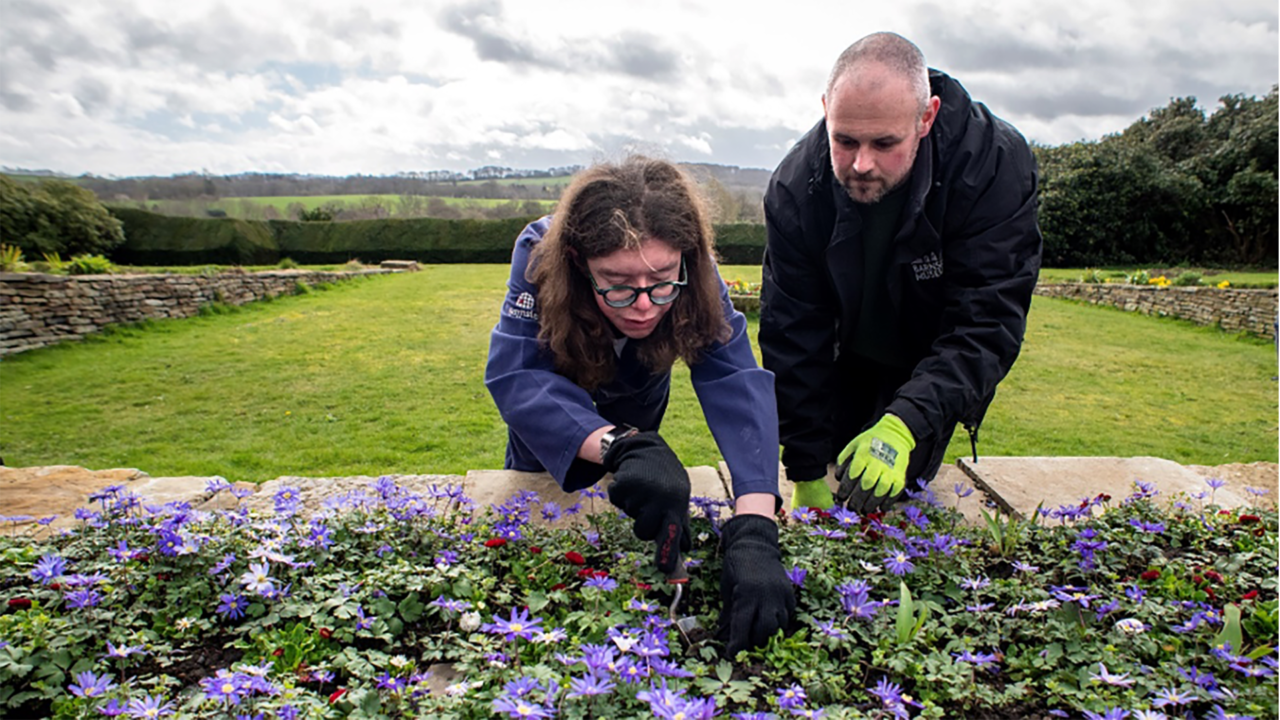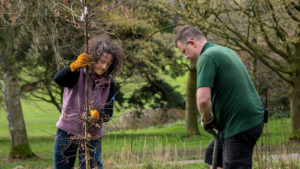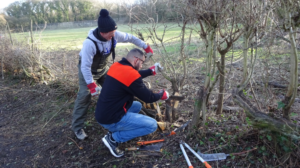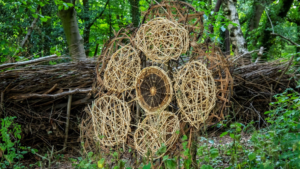- Posted on January 16th, 2024
Barnsley Museums – Supporting Green Spaces

Barnsley Museums is an NPO based in South Yorkshire with a selection of museums.
Aims
Barnsley Museums wants to take sustainable, biodiverse and environmentally friendly approaches in our work, to benefit our venues and the wildlife that live there, create best practise, raise awareness and improve people’s wellbeing while doing so, while also improving our reputation in this area.

Using traditional methods
Ultimately, we want our green spaces to be enjoyed by as many as possible, but we also have a responsibility to protect and understand them. Traditional methods are a natural fit, we have a heritage parkland and walled garden (Cannon Hall) and a country park (Worsbrough Mill) with Site of Special Scientific Interest status. Given for the range of habitats it contains, providing valuable nesting, resting, and feeding conditions for a wide assemblage of birds including red and amber list species, while also having a 400-year-old water mill at its centre, still making flour which is sold locally.
Choosing to adopt methods such as hedge laying and willow weaving, help us meet our action plan for environmentalism, offer engagement opportunities with the public in a heritage skill and increase our biodiversity and habitat spaces. There is also evidence that methods like hedge laying contribute to carbon capture, something we are very conscious an increased footfall contributes to. For general visitors it also shows we are doing what we can to protect our green heritage and hopefully encourages them to do the same.

Volunteer support and national campaigns
When we offer hedge laying, willow weaving or any opportunity to be involved in supporting our green spaces, we never fail to get people signed up and helping. It gives us a great opportunity to raise awareness about this work and gives participants a chance to experience our green spaces and get a sense of achievement from something positive. We have noticed this attracts corporate volunteer groups, with companies ‘paying back’ by giving their staff time to volunteer on projects, this then raises awareness about who we are beyond a traditional heritage audience. This helps us create a circular approach, regularly putting messages out on social media thanking volunteers for their efforts, helps to raise our profile as somewhere this volunteering and work is happening, which draws peoples interest, in many ways it’s the online ‘word of mouth’.
We have also been involved in national campaigns, we took part in the ‘Wild Escape’ with the Art Fund, culminating in a celebration on Earth Day, getting families and other visitors to make pledges about ways they could be more sustainable in their daily lives.
Our staff also get the chance to learn and practise these skills and for our regular volunteers it has given them a sense of doing something for a bigger cause and offered opportunities for their own development, for example through our local college we have been able to offer work experience placement directly linked to our green spaces.

Positive outcomes and learnings
This also resulted in wider national recognition with Green Flag awards and a Bees Needs award. Much of the work we do is now on a rolling programme of works and we will not be going back, we are actively seeking funding for green space specific projects and have incorporated this into fundraising campaigns such as adopt a field mouse or an owl campaign. As an NPO and part of a local authority we have environmental responsibility embedded in our working practise and seek ways to maximise this. We work to a couple of key frameworks, Arts Council England’s environmental investment principle is embedded alongside our wider organisation approach, Barnsley Council, is committed to net carbon zero by 2040, declared a climate emergency in 2019 and published a ‘Sustainable Energy Action Plan’, the museum service sits on the carbon management group with a range of departments across the local authority.

Quotes from participants
‘A very enjoyable day. The guide was very good explaining about the environments and how things work.’
‘Good opportunity to be outside with colleagues in a relaxed learning environment. Great to see this type of work being carried out locally – sustainable activity.’
‘I really appreciated the chance to gain more experience doing this heritage craft’
‘Felt at ease rather then stressed in the outdoors. Will be looking to volunteer again.’
This case study was written by Barnsley Museums
